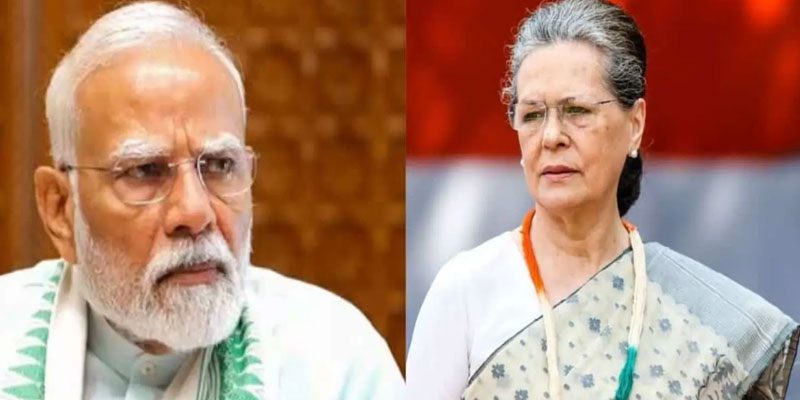As Washington braces for a historic Senate vote on President Donald Trump's massive tax-and-immigration package, dubbed the “One Big Beautiful Bill,” an unexpected war has erupted — not between Democrats and Republicans, but between Donald Trump and Elon Musk, two of America’s most influential figures.
The bill, which seeks to extend Trump’s 2017 tax cuts, authorize billions more for military spending, and fund mass deportation programs, has ignited outrage among fiscal conservatives and progressives alike. But the most high-profile opposition has come from tech mogul Elon Musk — who isn’t just tweeting criticism. He’s threatening to shake up the political establishment.
What Is Trump’s “One Big Beautiful Bill”?
Nicknamed in typical Trump fashion, the “One Big Beautiful Bill” is an ambitious, $4.5 trillion package intended to cement Trump’s vision for a second term. Key elements include:
· Extension of first-term tax cuts, largely benefiting corporations and high-income earners.
· Massive increases in defense spending, especially for border security infrastructure and immigration enforcement.
· Funding for a controversial deportation plan aimed at removing millions of undocumented immigrants.
But to pay for these goals, the bill proposes deep cuts to social programs — including $1 trillion in healthcare subsidies — and would increase the national debt by more than $3.3 trillion over the next decade. Republican leaders are trying to pass the bill in time for Independence Day, despite growing dissent both inside and outside Capitol Hill.
Elon Musk Fires Back
Enter Elon Musk — billionaire entrepreneur, former head of the now-disbanded Department of Government Efficiency (DOGE), and once an advisor to Trump. Musk’s response has been nothing short of explosive.
“Every member of Congress who campaigned on reducing government spending and then immediately voted for the biggest debt increase in history should hang their head in shame,” Musk wrote on X (formerly Twitter).
Musk went further, threatening to unseat lawmakers who support the bill, pledging to back primary challengers if necessary. He even floated the creation of a new political faction:
“If this insane spending bill passes, the American Party will be formed the next day. Our country needs an alternative to the Democrat-Republican uniparty so that the people actually have a VOICE.”
Musk’s frustration stems not only from the fiscal burden of the bill but its broader impact on national strategy. He called the bill "utterly insane and destructive," warning it could destroy millions of jobs and jeopardize U.S. competitiveness.
The Musk-Trump Feud Escalates
Musk’s defiance ignited a fierce social media exchange with Trump himself. On Truth Social, Trump lashed out: “Elon may get more subsidy than any human being in history, by far... Without subsidies, Elon would probably have to close up shop and head back home to South Africa.”
The veiled threat to strip federal subsidies from Tesla, SpaceX, and other Musk-led ventures marked a new low in their deteriorating relationship. Trump even suggested DOGE (a nod to Musk’s pet cryptocurrency and former policy advisory unit) investigate the financial aid given to Musk's companies.
The feud took a darker turn when Musk posted — and later deleted — a reference to Trump’s alleged links to the Epstein files, signaling that their battle is no longer just political, but personal.
The Political Stakes
While the bill’s fate in the Senate appears promising for Trump — where Republicans hold a slim majority — the House of Representatives may prove more turbulent. A group of rebellious GOP lawmakers has expressed concerns about the bill’s ballooning costs, healthcare cuts, and long-term consequences for America’s fiscal health.
The Senate "vote-a-rama" process has been sluggish, with lawmakers stuck in a marathon of amendment votes. Still, GOP leadership hopes to deliver the bill to Trump’s desk by the Fourth of July, giving him a symbolic and legislative victory.
But that celebration could be short-lived. Musk’s threats to back primary challengers, launch a new party, and influence public sentiment with his vast following and financial muscle pose a serious threat to traditional political boundaries.
A Nation at a Crossroads
The unfolding drama over the “One Big Beautiful Bill” is more than a battle over budgets. It’s a fight over what kind of country the United States wants to be: a fortress built on militarism and tax cuts, or a nation that balances security with sustainability and inclusion.
Elon Musk’s proposed American Party may or may not materialize, but his messaging is striking a chord with voters disillusioned by establishment politics on both sides. His call to dismantle what he dubs the “Porky Pig Party” — a jab at both Democrats and Republicans — underscores a growing hunger for alternative leadership.
Meanwhile, Trump’s aggressive push for his legislative priorities and his willingness to threaten even former allies suggest that the 2024 election cycle will be shaped as much by internal conflict as by party lines.
Forging a New Political Fault Line
If passed, the “One Big Beautiful Bill” will define Trump’s policy legacy. But it may also spark a political realignment. Whether Elon Musk’s rebellion results in a viable third party or simply reshapes the Republican primary field, one thing is clear: The battle over this bill has exposed a deeper war for the soul of American politics — and it’s only just begun.
(With agency inputs)



















